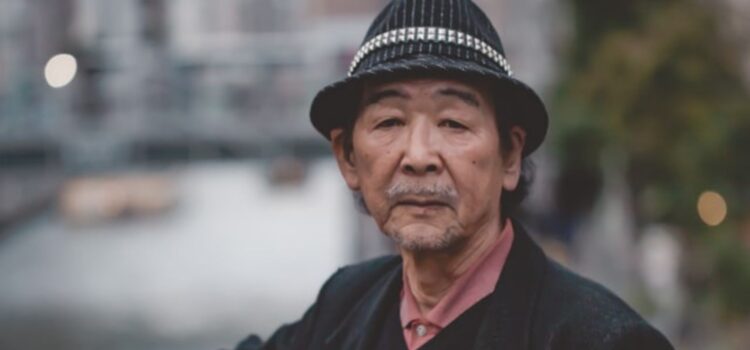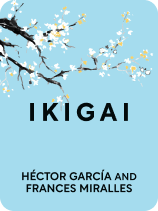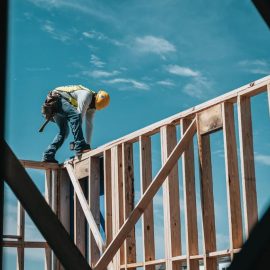

This article is an excerpt from the Shortform book guide to "Ikigai" by Héctor García and Francesc Miralles. Shortform has the world's best summaries and analyses of books you should be reading.
Like this article? Sign up for a free trial here .
Why does Japan have the longest life expectancy? What is the secret to Japanese longevity?
The Japanese are known for their extraordinary longevity, especially on the southern island of Okinawa, where people live longer than anywhere else. To uncover the secrets to Japanese longevity, author and blogger Héctor García and writer Francesc Miralles visited the Okinawan town of Ogimi, whose residents have the longest average lifespan of all Okinawans.
Keep reading to learn about the secrets of Japanese longevity.
The Secrets of Japanese Longevity: Lessons From Okinawa
Visiting Ogimi, García and Miralles were amazed at the vitality of the nominally elderly Okinawans they met. For example, a sprightly 89-year-old woman named Yuki and her “copilot,” a 99-year-old woman, drove the authors to lunch at a local restaurant that served “slow food” made from locally grown organic vegetables. At a triple birthday party for two women (99 and 94) and a “young” man (89), the youngest attendee was 83 years old. The authors danced, celebrated, and did karaoke with this group. They also participated in a game of the popular low-impact Japanese sport of gateball, losing to a 104-year-old woman.
García and Miralles noticed the following things about Ogimi’s lifestyle:
- The residents of Ogimi focus on their ikigais. In Ogimi, everybody knows their ikigai, but they don’t obsess over it.
- Residents of Ogimi never retire, or at least not like Westerners do. In Ogimi and Okinawa, people stay incredibly active long after the end of their formal professional lives, continuing to pursue their ikigais.
- Life in Ogimi is both intense and relaxed. The residents are always busy with important things to do, but they do it all calmly, with each person pursuing their ikigai in an unhurried way. And yet they do everything, even little things, with passion.
- Ogimi’s residents practice healthy habits. They all grow their own vegetable gardens. They’re constantly busy with tasks that let them both relax and remain physically active, such as karaoke and playing gateball.
- They focus their daily lives around the community. They have a strong sense of teamwork and interpersonal connection, choosing to help each other with all kinds of work, from gardening to building houses. They celebrate frequently together through birthday parties, games, and so on.
- In Ogimi, as in Okinawa as a whole, people come together in family-like groupings called moai. Members contribute money to their moai each month and enjoy meetings, dinners, and games together. They also use their shared funds to support each other financially, and they’re deeply involved in volunteer work. Membership in a moai creates a sense of security and increases a person’s lifespan. For many Okinawans, taking care of their moai is part of their ikigai.
The Principles of Japanese Longevity
To uncover the principles behind Japanese longevity, García and Miralles conducted 100 interviews with the oldest residents of Ogimi. They asked these people about their secrets to long life, their personal philosophy, and their ikigai. Then they boiled the resulting statements down to five principles or life lessons for optimal living:
- Refuse to worry.
- Create positive habits. For example, get up early. Grow a garden and tend it well. Eat a variety of good foods, preferably ones you’ve grown yourself. Keep working. Cultivate spirituality. Exercise and keep your body moving.
- Feed and nurture your friendships each day. Eat and drink together. Talk together. Walk together. Sing together.
- Live unhurried.
- Choose optimism. Smile. Affirm each day that you will be healthy and energetic. Enjoy your family. Do volunteer work.
The Ikigai Connection
From their observations and interaction with the residents of Ogimi, García and Miralles also concluded that ikigai stands above and behind all five of these principles and constitutes the heart of Japanese longevity. The people they met in Ogimi displayed a clear sense of purpose. Some focused intensively on their gardens. Others focused on their friends or on volunteer projects. But all had a clear reason to get up each day, and this, more than anything, appeared to keep them enthusiastic and energetic into advanced old age.

———End of Preview———
Like what you just read? Read the rest of the world's best book summary and analysis of Héctor García and Francesc Miralles's "Ikigai" at Shortform .
Here's what you'll find in our full Ikigai summary :
- How to apply the concept of ikigai, or life purpose, to your own life
- Why the people of Okinawa live longer than people anywhere else
- The 10 commandments of ikigai






